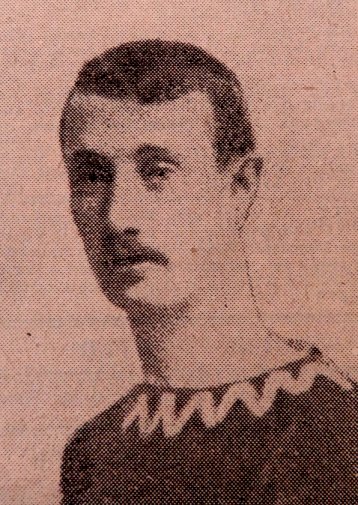Mexborough & Swinton Times – Friday 05 August 1932
Darfield Man Who Rode For England
Memories of the Nineties

Dwelling in a small cottage set well bock from the main road near Ardslev Parish Church lives a man at one time feted and honoured in sporting circles in all parts of Europe. His name on a display bill was sufficient to ensure a good attendance at any sports meeting, and manufacturers competed keenly for the privilege of being able to advertise that he had used their products. He was able to demand appearance money in the way that dirt-track riders do to-day.
He is Mr. Elijah Scott, a track cyclist, winner of the Hull 100 guinea trophy, 1895; Doncaster 70 guinea trophy, 1895- £100 mile race and £50 cup, Headingley, Leeds, 1895; Muir Challenge Shield (three consecutive years); 25 miles championship of England, at Fellowlield, Manchester, 1895; and £1,600 worth of prizes in the three years 1891-3; in addition to representing England in the world’s championships at Cologne in 1895.
These are only a few of Mr. Scott’s successes. Dozens of cups, shields and other trophies decorate his home and those of his sons, their families and relations.
Mr. Scott is a Darfield man who went to reside at Ardsley some 25 years ago. He had then been riding a good number of years, and was well known in England, Germany, France, and Ireland, where he had raced, and also in most other European countries. He reached the zenith of his career in 1895, but had previously been beating all comers. Four years earlier he defeated Jack Stocks, of Hull, in a memorable battle on the Boulevards course and set up n new record for the half-mile, standing start, of 1min. 1-5 sec. This record, it is understood, has never been beaten.
The same year young Scott won the coveted Raleigh medal against such class riders as A. Zimmerman, the American, and also secured 27 first prizes, 13 seconds, and seven thirds in 51 events. This was one of his best years. In 1895 he won the trophies mentioned above, and was also concerned in an epic race with Tom Somersgill, of Leeds. It was over half-a-mile, and Scott had been practically handicapped out of it, but he was in great form and managed to, pull it off by a wheel. The times were: Somersgill, 1 3-5 secs; Scott, 1 min. 1-5 sec.
About this time Scott was chosen to represent England in the Olympic games at Cologne, and was very, unlucky in the 100 kilometres. The best part of the distance had been covered, and he was going well when he was boxed in by a number of Dutch riders and flung from his machine. Scott, however, had done enough to prove himself a capable long distance racer.
Manufacturers competed for his services, and he was almost implored to use their machines. Under the circumstances one would have thought Scott would have tried various mounts, but as a matter of fact he used one make throughout his racing career. At a charity meeting held on the Bramall Lane ground, Sheffield, in 1895, he clipped two seconds off the track record after another famous rider, A. J. Watson, of London, bad tried and failed. The same day Scott astonished the sporting world winning every event. The following year he turned professional, but was reinstated as an amateur just before the war.
At the height of his fame he received invitations from all over the country to allow himself to be “billed” at sports meetings, and large sums were offered him as a guarantee for his presence. In those days crack cyclists were expected to appear in all sorts of novel contests. He was one of five riders who competed at Bramall Lane in a 25-mile race against five men who ran ten miles and five who walked six miles. Scott won by a quarter of a mile from Charlie Mahon, the walking champion.
Scott continued to be a prominent figure in cycle racing for many years, and even after giving up serious riding, when he appeared at charity events he was always given a back mark. One of the proudest moments of his life was after a 23-mile race at Doncaster in May, 1919, when the late Billy Copes, N.C.U., steward and timekeeper at Bramall Lane, told him his race was one of the finest things he had ever seen by a man of his age. In this race Scott finished sixth, against young riders. He passed six rivals between Bawtry and Doncaster, and taking a wrong turning went nearly a mile out of his way. But for this he would have been an easy winner.
Curiously enough, none of Mr. Scott’s sons have taken much interest in track racing, although all of them have cycles and enjoy a ride. A colliery mishap at Houghton Main wrote “finish” to Mr. Scott’s working life, some years ago. He was struck by a fall of stone, which broke his collar bone and paralysed a nerve in his left arm. He has always had a reputation for sportsmanship. On the racing track, and has worthily upheld the highest traditions of South Yorkshire sport.